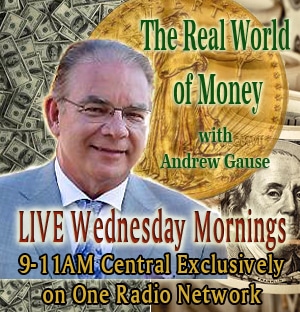A single clause in Point 19 of the communiqué issued by the G20 leaders
amounts to revolution in the global financial order.
"We have agreed to support a general SDR allocation which will inject
$250bn (£170bn) into the world economy and increase global liquidity," it
said. SDRs are Special Drawing Rights, a synthetic paper currency issued by the
International Monetary Fund that has lain dormant for half a century.
In effect, the G20 leaders have activated the IMFs
power to create money and begin global "quantitative easing". In
doing so, they are putting a de facto world currency into play. It is outside
the control of any sovereign body. Conspiracy theorists will love it.
It has been a good summit for the IMF. Its fighting fund for crises is to be
tripled overnight to $750bn. This is real money.
Dominique Strauss-Kahn, the managing director, said in February that the
world was "already in Depression" and risked a slide into social
disorder and military conflict unless political leaders resorted to massive
stimulus.
He has not won everything he wanted. The spending plan was fudged. While
Gordon Brown talked of $5 trillion in global stimulus by 2010, this is mostly
made up of packages already under way.
But Mr Strauss-Kahn at least has resources fit for his own task. He will
need them. The IMF is already bailing out
week
became the first G20 state to ask for help. It has secured a precautionary
credit line of $47bn.
Gordon Brown said it took 15 years for the world to grasp the nettle after
Great Crash in 1929. "This time I think people will agree that it has been
different," he said.
President Barack Obama was less dramatic. "I think we did OK," he
said. Bretton Woods in 1944 was a simpler affair. "Just Roosevelt and
Churchill sitting in a room with a brandy, thats an easy negotiation, but
thats not the world we live in."
There will be $250bn in trade finance to kick-start shipping after lenders
cut back on Letters of Credit after Septembers heart attack in the banking
system. Global trade volumes fell at annual rate of 41pc from November to
January, according to
CPB institute – the steepest peacetime fall on record.
Euphoria swept emerging markets yesterday as the first reports of the IMF
boost circulated. Investors now know that countries like
arrange a credit facility able to cope with major shocks – and do so on
supportive terms, rather than the hair-shirt deflation policies of the old IMF.
Fear is receding again.
The Russians had hoped their idea to develop SDRs as a full reserve currency
to challenge the dollar would make its way on to the agenda, but at least they
got a foot in the door.
There is now a world currency in waiting. In time, SDRs are likely evolve
into a parking place for the foreign holdings of central banks, led by the
Peoples Bank of China.
week to offer $95bn in yuan currency swaps to developing economies show how
fast
aims to break dollar dependence.
French President Nicolas Sarkozy said the summit had achieved more than he
ever thought possible, and praised Gordon Brown for pursuing the collective
interest as host rather than defending "Anglo-Saxon" interests. This
has a double-edged ring, for it suggests that Mr Brown may have traded pockets
of the British financial industry to satisfy Franco-German demands. The
creation of a Financial Stability Board looks like the first step towards a
global financial regulator. The devil is in the details.
Hedge funds deemed "systemically important" will come under
draconian restraints. How this is enforced will determine whether
funds are there – will continue to flourish.
It seems that hedge funds have been designated for ritual sacrifice, even
though they played no more than a cameo role in the genesis of this crisis. It
was not they who took on extreme debt leverage: it was the banks – up to 30
times in the
60 times for some in
off-books "conduits" to increase their bets. The market process
itself is sorting this out in any case – brutally – forcing banks to wind down
their leverage. The problem right now is that this is happening too fast.
But to the extent that this G20 accord makes it impossible for the
"shadow banking" to resurrect itself in the next inevitable cycle of
risk appetite, it may prevent another disaster of this kind.
The key phrase is "new rules aimed at avoiding excessive leverage and
forcing banks to put more money aside during good times." This is more or
less what the authorities agreed after the Depression. Complacency chipped away
at the rules as the decades passed. It is the human condition, and we can’t
change that.



'The G20 moves the world a step closer to a global currency' has no comments
Be the first to comment this post!